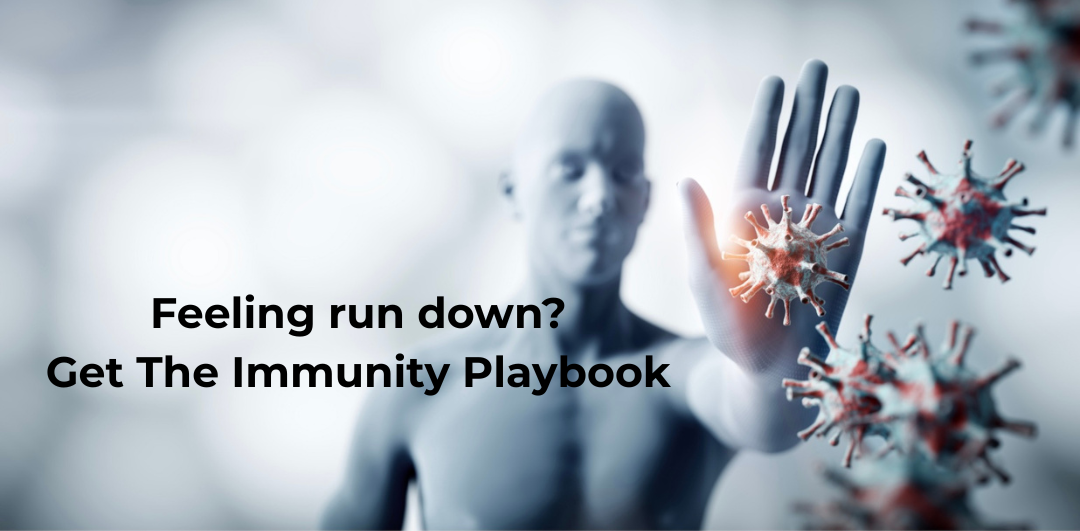The Signs of Hormonal Imbalance & How to Deal with Them
Oct 10, 2025
You know that feeling when you snap at your partner over some small thing, then immediately want to cry about it? Or the frustration of when your jeans fit like a glove last week but today you can’t even zip them up? Or the irritation of waking up to a fresh breakout that makes you feel like you're 15 again—and not in a good way?
If this sounds familiar, welcome to the hormone imbalance club. The good news? These symptoms aren't something you have to live with. They are signs your body is trying to tell you something important. And that something is likely that your hormones are all over the place.
In this blog, we'll look at signs that indicate your hormones may have gone haywire and what you can do about it.
When Your Hormones Are Out of Tune
Your hormones are like an orchestra. When everything's in harmony, you feel energized, emotionally balanced, and your skin is clear. But when even one of them is out of tune, the whole performance falls apart. This is especially true when estrogen runs the show. And when it comes to hormone imbalances, it is one of the most common ones that women face.
It’s important to understand that estrogen dominance is not simply about having too much estrogen. You can have too much estrogen circulating, and not detoxing properly. You can have a situation where you don’t have enough progesterone to keep estrogen in check. Or you can have both! When either (or both) of these situations arise, this can cause many issues.
Progesterone is like your body's natural chill pill—it's calming, anti-inflammatory, and helps counteract estrogen's effects. When it’s low (which can be due to a variety of factors, including stress, poor nutrition, or perimenopause), estrogen steps in and takes over. The result? A flood of unsavory symptoms, including moodiness, bloating, acne, breast tenderness, heavy periods, brain fog, and that stubborn weight around your hips and thighs that refuses to budge.
Then there’s corresponding thyroid problems. Because thyroid hormones are connected to sex hormones like estrogen and progesterone, issues with the latter two may cause issues with the former. Low thyroid function can show up as puffy face and fingers, mood swings, and slow digestion that leads to bloating.
Lastly, there's the connection to cortisol, your stress hormone. Chronic stress keeps cortisol elevated, which can suppress progesterone production and screw around with your blood sugar, leading to sugar cravings, irritability, and inflammatory acne, especially along your jawline.
The Functional Lab Advantage: Stop Guessing, Start Testing
With conventional hormone testing, an appointment might go something like this. You go to your doctor, they run a basic panel, everything comes back "normal," and you're sent home feeling like you're crazy. But you're not crazy—you're just not getting the full picture.
This is where functional lab testing is a game changer. Functional labs go beyond traditional testing to fill in the gaps, looking at optimal ranges and giving you a more comprehensive view of what's happening in your body beyond surface-level checks.
The gold standard for hormone testing is the DUTCH test (Dried Urine Test for Comprehensive Hormones). It measures not just your hormone levels, but also how your body is metabolizing them. This matters because two women can have the same estrogen level, but if one is metabolizing it poorly, she'll have symptoms while the other feels great.
Then there are comprehensive thyroid panels, which go beyond basic TSH testing to include Free T3, Free T4, Reverse T3, and thyroid antibodies. Many women have "normal" TSH but are still hypothyroid based on these other markers. Without a more comprehensive panel, everything may look fine, but it’s very clearly not.
Cortisol testing is also vital, especially a four-point cortisol test, which shows your stress hormone pattern throughout the day. If you feel wired and tired all the time, or are exhausted in the morning, this test pinpoints what's happening with your stress response and helps guide targeted treatment.
Testing essential nutrient levels is also vital. Nutrients like B vitamins, magnesium, vitamin D, and iron are building blocks for hormone production, so any deficiencies with these will potentially cause hormone imbalances.
Practical Tips for Getting Your Hormones Level Again
The good news? You don't have to wait for lab results to start supporting your hormones. Here are strategies to put in place that make a real difference.
- Balance your blood sugar: Insulin instability impacts all your other hormones. Combat that chaos by eating protein with every meal and snack, avoiding long gaps between meals, and cutting back on refined carbs.
- Love your liver: Your liver is a powerhouse for metabolizing and clearing excess hormones. Give it a boost by eating cruciferous vegetables (Brussels sprouts, broccoli, cauliflower), keeping yourself hydrated, and limiting alcohol intake. Drinking lemon water first thing in the morning is also helpful for detoxing.
- Prioritize protein and healthy fats: Proteins and healthy fats provide the raw materials your body needs to make hormones. To support that production, aim for 25-30 grams of protein at each meal. Go for healthy fats like avocado, olive oil, nuts, and fatty fish.
- Move mindfully: Exercise is crucial, but overdoing high-intensity workouts can raise cortisol, which isn’t ideal when you are already dealing with hormonal imbalances. To address that, mix strength training with less-intensive activities like walking or yoga.
- Manage stress (really): This isn't optional. Try breath work, meditation, adequate sleep, or even just setting boundaries (at work, at home...anywhere you feel stretched and stressed). Your progesterone levels will thank you later.
Charting a Path to Hormone Happiness
Your body is forever trying to communicate with you. Those mood swings, bloating, and breakouts are messages. Listen to them, investigate with the right testing, and take action.
If you’ve reached your limit of feeling tired, irritable, puffy, and pimply, you’re not alone, and help is available. Reach out to me and let’s discuss how I can help you interpret the messages your body is sending. Together we can get you back to balance. Set up a call and let’s discuss a path forward!


